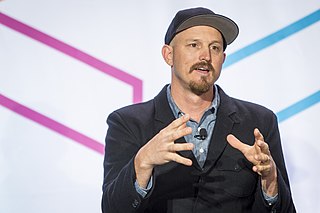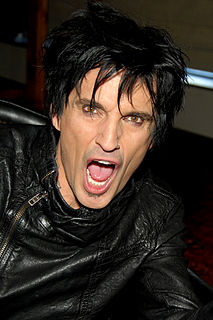A Quote by Paul Hawken
First we need to decide what needs to be done. Then we do it. And then we ask if it is possible.
Related Quotes
I would like to see ... an entirely different procedure which is that we vote on the budget and decide how much we are going to spend, first, the way any family does, and then fit our priorities into what we think we have to spend. Instead, what we do, is to do it incrementally, starting at the bottom, adding and adding and adding. ... Until we get the support of all the authorities in this House to decide, first, what we think this country can afford and then decide where the amount is going to be allocated, we will never have common sense in this House.
If you ask me, the place that a story happens is as equal character. It's almost like an ecological viewpoint: These people are living in this piece of land, and in this piece of land in this time this is possible. For me, I almost think location first. It's time first - what year is it - then where are we, and then who is in it.
The things to do are: the things that need doing: that you see need to be done, and that no one else seems to see need to be done. Then you will conceive your own way of doing that which needs to be done - that no one else has told you to do or how to do it. This will bring out the real you that often gets buried inside a character that has acquired a superficial array of behaviors induced or imposed by others on the individual.
First the stalk — then the roots. First the need — then the means to satisfy that need . First the nucleus — then the elements needed for its growth. The seed is a primary cause. The need, the nucleus, both are primary causes. Conditions — they are secondary. Given enough life in the nucleus, it will draw to itself the necessary means for growth regardless of conditions.
My view on well-being and fulfillment comes from Maslow and positive psychology, and that is that you're satisfying three sets of needs. First need is physiological and safety needs: Got to satisfy those first. And the second is you got to satisfy your community needs because we're social animals, and if we don't have that, we're empty and we don't have people to share knowledge and bounce things off of, and challenge ourselves. And then the third is the idea is to find a calling.
We ask ourselves all kinds of questions, such as why does a peacock have such beautiful feathers, and we may answer that he needs the feathers to impress a female peacock, but then we ask ourselves, and why is there a peacock? And then we ask, why is there anything living? And then we ask, why is there anything at all? And if you tell some advocate of scientism that the answer is a secret, he will go white hot and write a book. But it is a secret. And the experience of living with the secret and thinking about it is in itself a kind of faith.






































